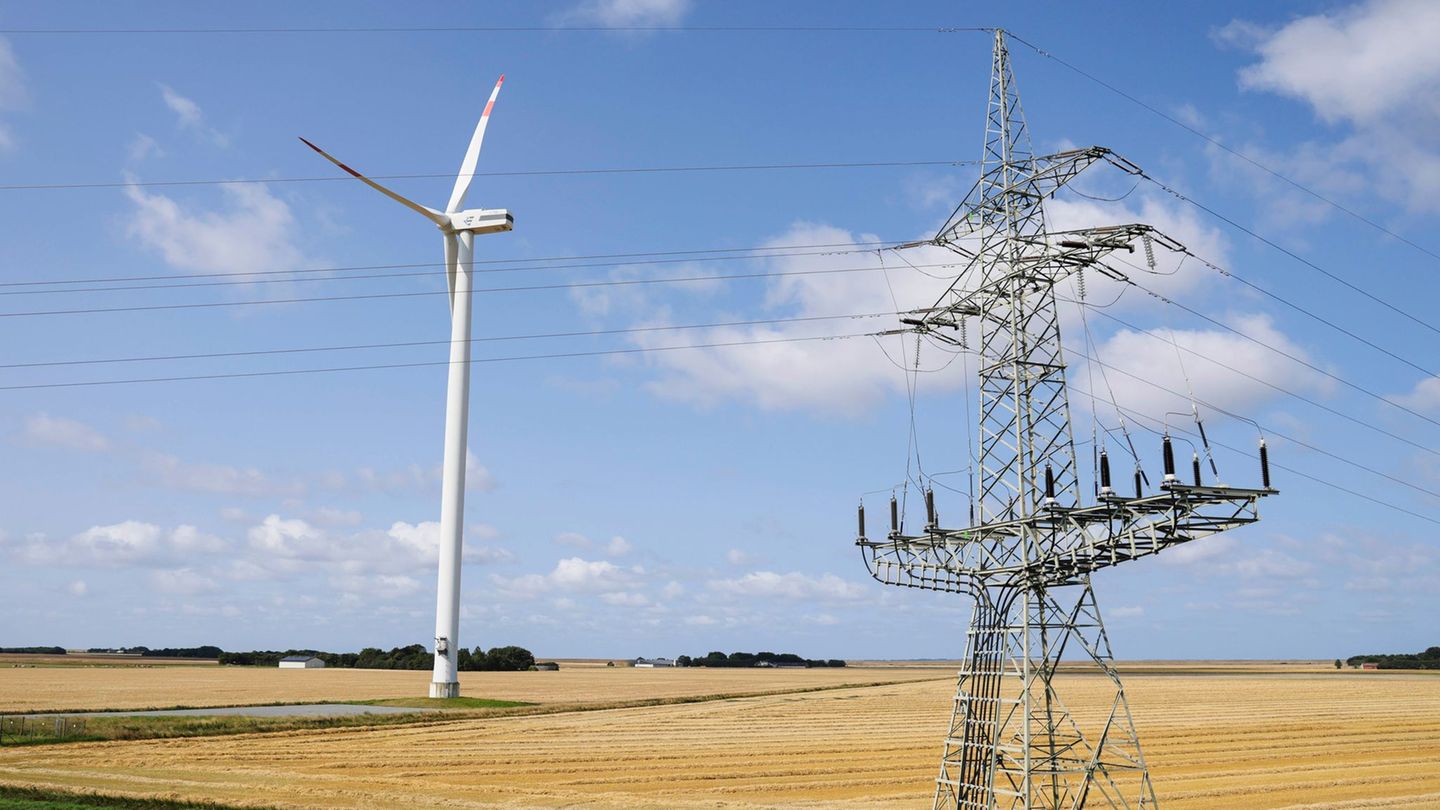energy
Dispute over electricity reform: cheaper in the north than in the south?
Copy the current link
Add to the memorial list
The demand for different electricity price zones is not new. So far, this has always failed. North countries are now trying to make a new attempt.
A demand for North German federal states after a new regulation of the electricity system for lower prices in their regions has triggered resistance in the south. A reform could be at the expense of southern German countries and lead to price increases there. Bavaria and Baden-Württemberg immediately rejected the demand from northern countries to abolish the so-called so-called power bid zone in Germany. The Federal Government referred to the coalition agreement, in which no change is planned.
What north countries suggest
In the north, wind power production has grown sharply in recent years. More is consumed in the south. The power grid expansion to transport the wind power into large industrial centers in the south lags behind. In order not to overload electricity lines, expensive measures (redispatch costs) are necessary to secure and stabilize the network.
Hamburg’s first mayor Peter Tschentscher (SPD) told the “Handelsblatt” that different power bid zones would be a strong market economy incentive for a sensible regional expansion of the power grids and regenerative electricity production as well as for the use of innovative technologies.
Brandenburg’s Prime Minister Dietmar Woidke (SPD) said that a division into electricity price zones could be the solution for this if it does not precede the network expansion. “This means that there would be significantly cheaper electricity prices in the regions with a good expansion with the renewable, which is good for company settlements.” At the same time, the pressure, networks and renewable energies are increasing in the regions with higher electricity prices. It is not about the fact that the countries are punished that are well positioned when expanding the renewable.
The Schleswig-Holstein Prime Minister Daniel Günther (CDU) and Bremen’s Mayor Andreas Bovenschulte (SPD) also want a reform. Demands for different electricity price zones are not new. All producers and consumers currently apply the same stock market electricity prices all over Germany.
Bavaria’s Prime Minister Markus Söder (CSU) and Baden-Württemberg Prime Minister Winfried Kretschmann (Greens) reacted with a joint explanation: “We do not think anything about this proposal and that is why we will stand against this with all might.
Germany is a uniform economic area. “For this reason, the preservation of a uniform, liquid German electricity price zone is needed. Instead of continuing this debate, it would make more sense to make the expansion of the network infrastructure a decisive time to advance.”
The CSU state group leader in the Bundestag, Alexander Hoffmann, told the German press agency: “The north also has to understand: Anyone who damages the large business locations in the south harms the whole country. We will not allow that.”
Baden-Württemberg’s Minister of Energy Thekla Walker (Greens) said that the best and fastest means of choice against high redispatch costs were and remains an accelerated power grid expansion. Both the growth of renewable energies and the construction of new “buffer power plants” should be stimulated by regional funding factors where they developed the greatest benefit in the German power grid – namely in the southern consumer centers.
BUND: The advantages of a uniform zone predominate
A spokesman for the Federal Ministry of Economic Affairs and Energy referred to the coalition agreement of the CDU, CSU and SPD, in which it says: “We stick to a uniform powerborn zone.” The spokesman continued to say that the advantages of a uniform price zone would outweigh. There is progress in the network expansion.
Stadtwerke also against changes
The Stadtwerkeverband VKU rejects a division of the uniform power zone, as a spokesman said. The uniformity of the power bid zone enables stable market conditions, secure the predictability for municipal utilities and companies and ensure high liquidity on the wholesale markets. In addition, it ensures that risks and costs are evenly distributed across the entire federal territory. “A division would not solve existing problems, such as network bottlenecks, but would create additional challenges – especially through new uncertainties for investments and higher market volatility. Lower electricity prices in the federal states with a lot of wind energy are then higher in the industrial federal states.”
dpa
Source: Stern




